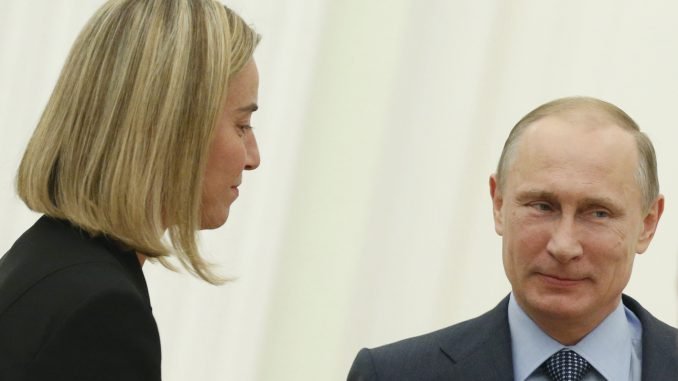
There are good news and bad news in the events of the last few weeks. The good news is that Kyiv government has withstood the test as expressed by the sovereign choice of the people and returned with a strong mandate to pursue reform and defend Ukraine. The bad news is that self-proclaimed separatist strongholds in Luhansk and Donetsk held their own polls to “elect” their leaders and got a pat on the back from the Kremlin. The so-called ceasefire regime serves the interests of the Kremlin which in turn uses it to further reinforce its forces on the ground and continues to kill innocent civilians and Ukrainian servicemen alike.
The European Union leaders that have met in Brussels on 23-24 October have stated that the separatist-held “elections” will not be recognised and “run counter to the letter and the spirit of the Minsk Protocol”. The Russian Ministry of Foreign Affairs said that they “respect the free choice of the citizens of the South East.” The South East of what, one might rightfully ask. According to Russian officials, this is the sort of ambiguity that contributes to a dialogue with authorities in Kyiv.
Effectively endorsing the newly-proclaimed leaders of Luhansk and Donetsk, Moscow disregarded warnings received from Brussels. Worse, the Russian authorities on the day of the elections further reinforced military supplies to the rebel fighters.
Some in the EU seem to be tired of the ongoing confrontation with the Russian authorities. Voices can be heard reflecting on the need to engage. Others go as far as to acknowledge the legitimacy of Russian concerns with regards to NATO enlargement. All this can’t be more wrong. First, the prerequisite for engagement is strict adherence to rules and agreements. Second, Kremlin-backed guerrillas who sabotaged elections to the Verkhovna Rada have buried any chance of dialogue on the basis of the Minsk agreements. The Minsk agreements are effectively no longer worth the paper they are written on.
So what now? The European Union has no choice but to walk the walk. The Kremlin has mocked the 28 Heads of State and Government that do not recognise the result of the pseudo elections in Luhansk and Donetsk. Hence a consistent response to such a provocation would be to revisit the sanctions and restrictive measures on state-owned industries and businesses with links to the Kremlin.
Bill Browder, a famous critic of Russian President Putin, stated on Twitter: “You want to know what Putin’s approval rating really is? Russia’s Rouble Plunges Past 43 to Dollar.” Since his post, the Rouble is trading at 41 to the US dollar. Sanctions are hitting the target and pressure is mounting internally. If the falling rouble is not a proof of that, then one should analyse the increase of Russia’s military show-off (submarines, bombers and fighter jets circling NATO territories) and state-sanctioned propaganda warfare.
This is not the time to let go. This is the time to persevere and tighten the screws on Putin’s regime. Lithuania is the country that suffers most from the sanctions regime, but despite this fact, the majority of the population supports the position that the European Union has undertaken thus far. The challenge is great for the new EU foreign policy supremo, Federica Mogherini, but it is only symbolic that her first statement after taking over the job was about the situation in Eastern Ukraine. Her communiqué reads: “The aspiration for peace can’t be only a political statement, it requires political will and good faith.” It is time for sanctions to continue its contribution to peace, since by now it is abundantly clear that Russia will not.

Be the first to comment